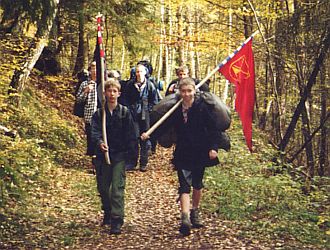die WANDERVÖGEL
The youth movement that inspired our name
Tracing its roots to a group of German students that began meeting in 1895, the Wandervögel movement was officially formed in 1901 as a back-to-nature youth organization emphasizing freedom, self-responsibility, and the spirit of adventure.
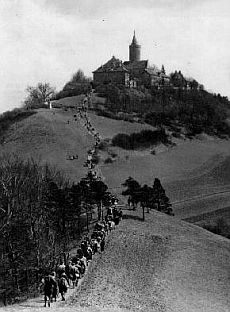
die WANDERVÖGEL
Created in reaction to the materialism, hypocrisy, and stifling social conservatism of the Kaiser Reich, the Wandervögel movement is sometimes called the first hippie movement.
Like the American hippies of the 1960s and '70s, most Wandervögel came from well-to-do middle-class families.
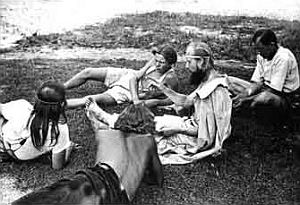
die WANDERVÖGEL
These young people yearned for a simpler, more natural way of life based on folkish values very different from those which had shaped the Industrial Revolution and modern big-city life.
The Wandervögel also called for a Jugendkultur—a culture of youth led by youth—in which the individual was truly valued.
They believed they were creating a culture which would provide something greater to believe in than the ways of their parents.
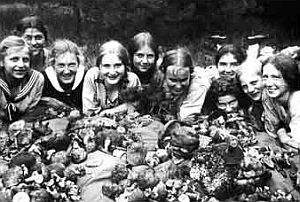
die WANDERVÖGEL
The movement’s name literally translates as “Wandering Birds,” but “vagabond” probably has the closest English meaning. Some have suggested the name was derived from “Birds of Passage” in Walt Whitman’s Leaves of Grass, however it was most likely taken from a poem by Otto Roquette which was later turned into a Wandervögel song.

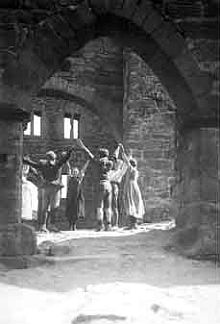
die WANDERVÖGEL
Before the Great War and in the postwar years before the rise of the Nazis, thousands of young people in hiking shorts and colorful costumes could be seen hiking around the German countryside with banners flying, guitars and rucksacks slung on their backs, in search of a better way of life.
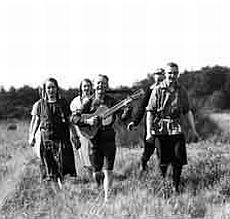
die WANDERVÖGEL
They delighted in hiking in groups, rediscovering nature, sleeping out under the stars, making music, telling folk stories and singing folk songs, dancing around the campfire.
At first this youth movement consisted exclusively of boys, but girls were soon after allowed into the movement as well—although the sexes were not integrated together.
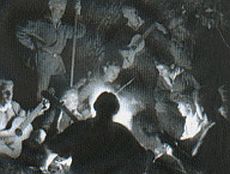
die WANDERVÖGEL
The Wandervögel movement grew rapidly in its early years, attracting the attention and grudging admiration of Germany’s mainstream political and religious establishment (which soon created its own competing youth groups with many ideas borrowed from the Wandervögel).
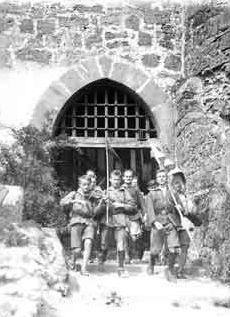
die WANDERVÖGEL
With the outbreak of war in 1914, most German youths were quickly caught up in the patriotic fervor that swept Germany.
They enthusiastically marched off to the front, imagining war as a noble, romantic experience that would mold them into ‘new men.’
In reality, however, millions of them died senselessly.
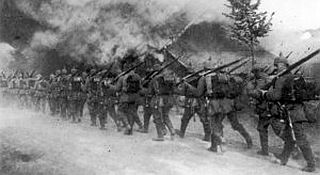
die WANDERVÖGEL
The First World War wiped out an entire generation of German youth. With them died their romantic dreams and shining ideals.
Nevertheless, elements of the Wandervögel would survive in subsequent developments in the German youth movement, not only through surviving Wandervögel groups themselves, but through other youth organizations, as well.
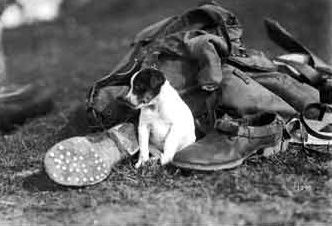
die WANDERVÖGEL
Before the First World War the movement was strictly apolitical; but after the war it splintered into many competing and highly politicized groups.
With the rise of the Nazis in 1933 the Wandervögel, like all other youth organizations, were absorbed into the Hitlerjugend.
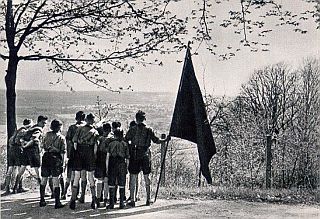
die WANDERVÖGEL
Yet even the Hitlerjugend was styled after the Wandervögel in many ways.
The HJ incorporated the concept of ‘youth led by youth’ into its core ideals, their uniforms echoed the unique style pioneered by the Wandervögel, as did customs like the straight-arm salutes and the greeting “heil,” the wearing of camp knives, singing of folk songs, and other elements of Wandervögel style and substance.
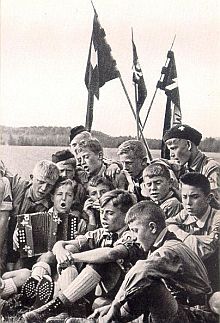
die WANDERVÖGEL
After the Second World War, Wandervögel was re-established as a non-political youth organization dedicated to the movement’s original values, including individual freedom, human rights, self-responsibility, internal truthfulness, and reverence for nature.
Wandervögel functions throughout Germany today.
